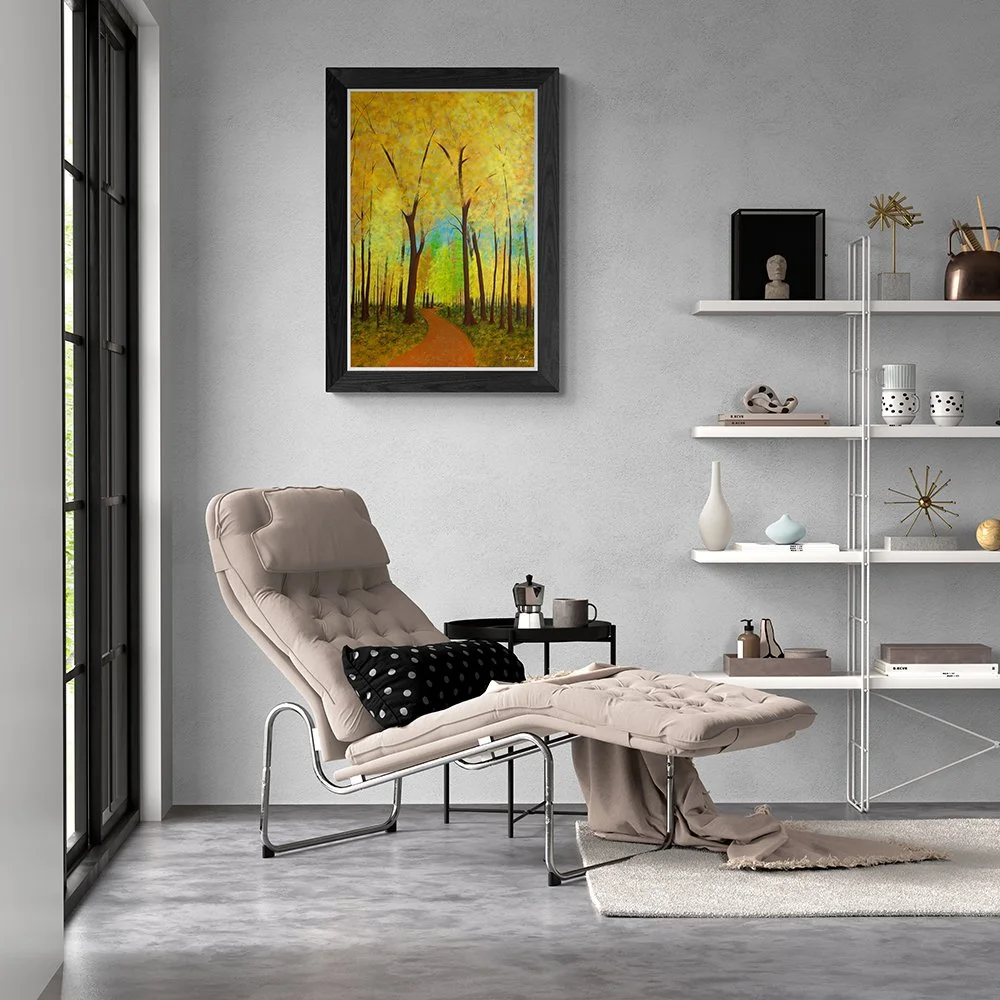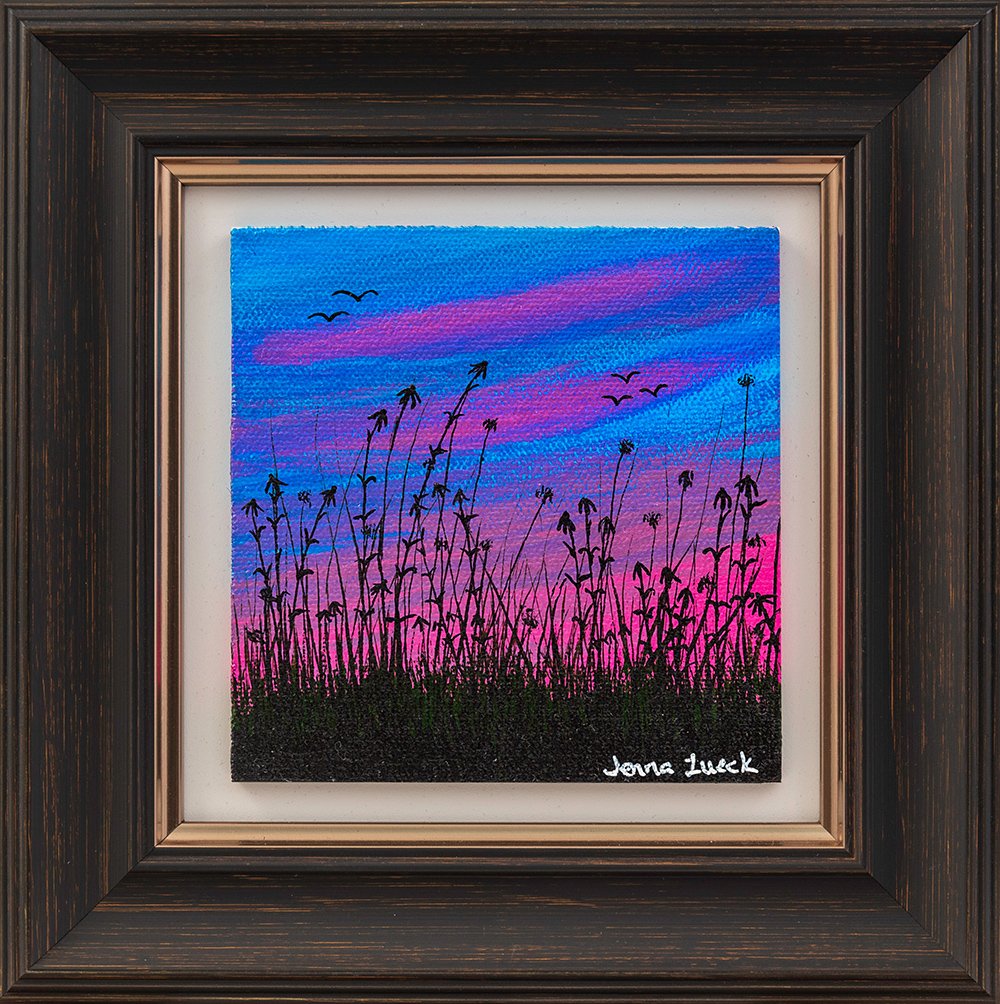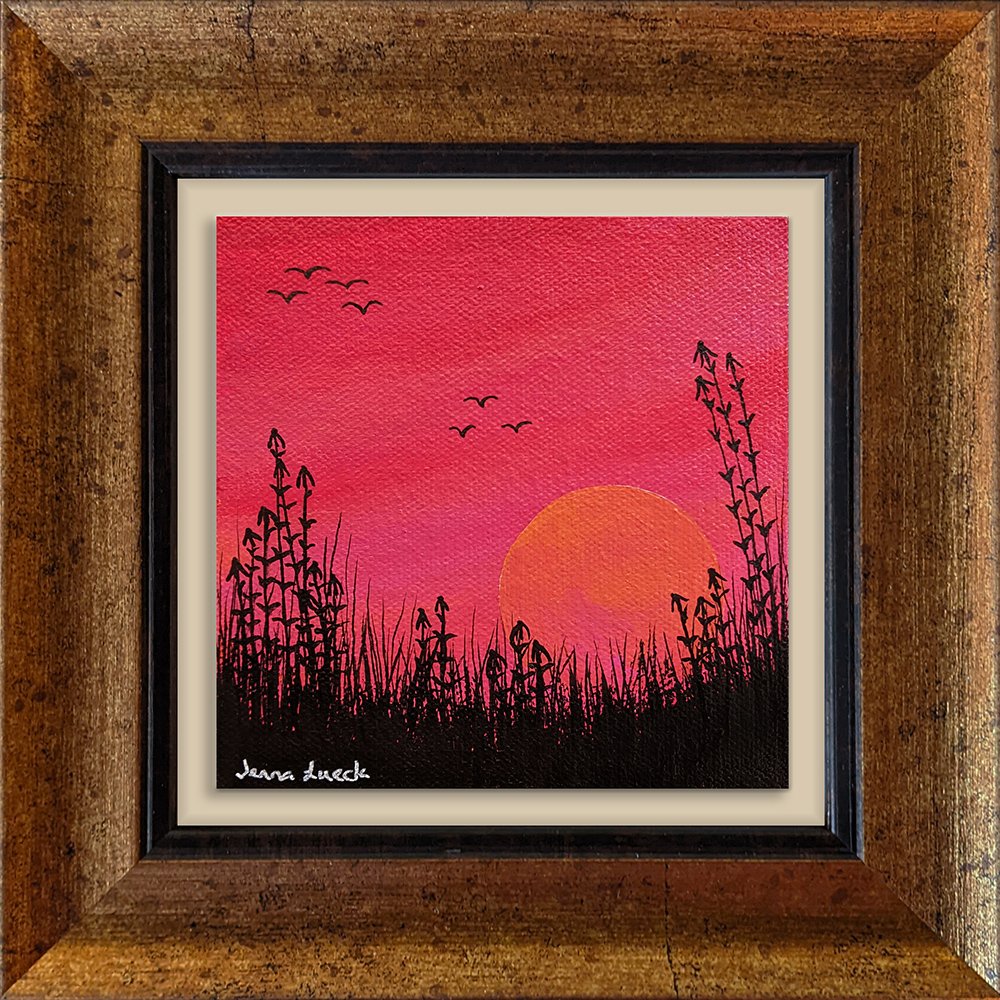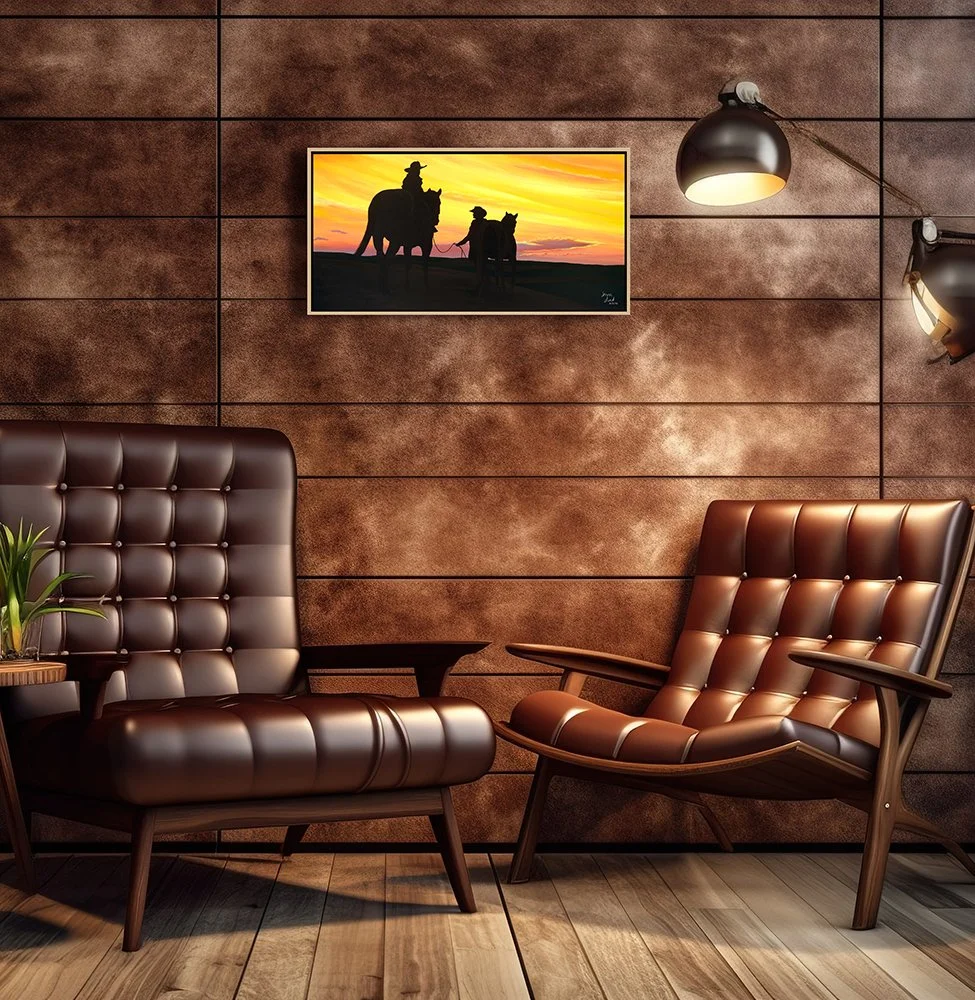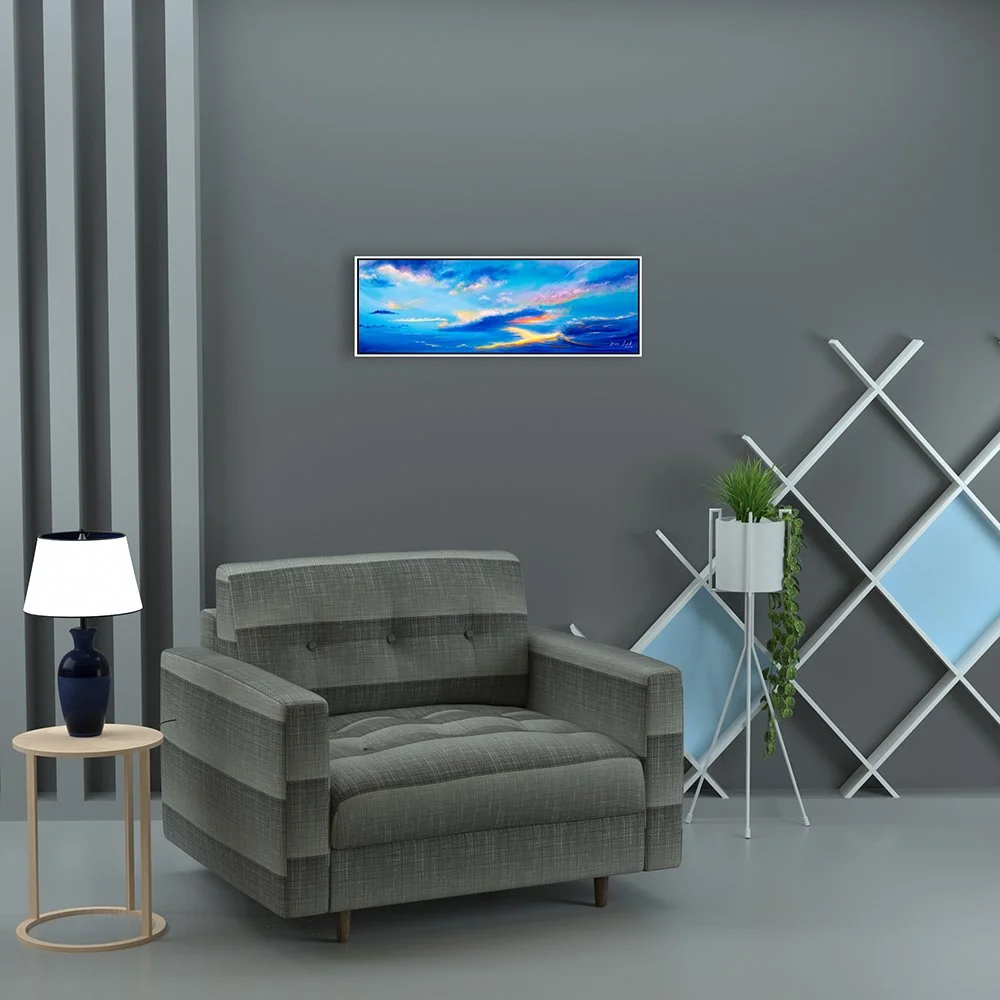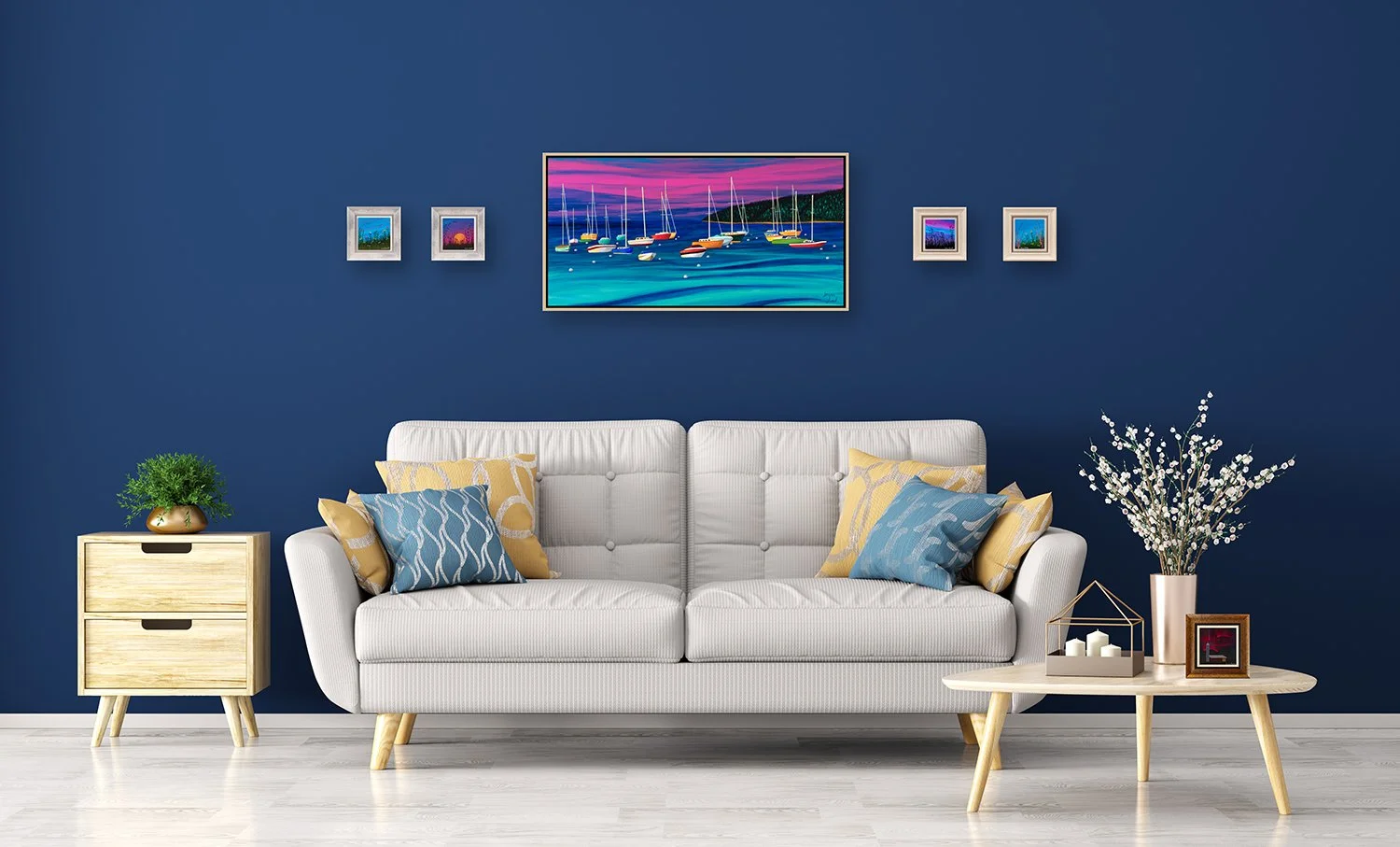Framing 101
The Art of Framing:
Choosing the Right Frame to Complement Your Artwork
Framing is more than just a way to display your artwork—it enhances the mood, protects your piece, and helps tie your space together. While these tips can apply to many types of art, today we’ll focus on what works best for vibrant landscape and skyscape paintings, especially my own collection of originals, limited edition prints, and mini paintings.
Do You Need a Frame?
Not all artwork needs a frame! Here’s how to decide:
✅ No Frame Needed:
Limited Edition Metal Prints – These have a modern, sleek look and float one inch off the wall, making a frame unnecessary. They’re designed to be bold statement pieces on their own.
Thick Canvas Originals – I paint the edges black so you can display them as-is for a contemporary feel. If you want to add a frame, a floater frame is the best choice.
Canvas Prints – Like originals, these should be framed with a floater frame if desired, but never placed behind glass.
✅ Framing Recommended:
Luster Paper Limited Edition Prints – These prints should be framed behind glass or acrylic to protect them. Adding a mat will elevate the presentation and keep your artwork from touching the glass.
✅ Already Framed for You:
Mini Skyscape Originals – All of these are framed in a unique floating style that enhances their small but mighty presence!
Choosing the Right Frame for Your Landscape Painting
The right frame enhances your artwork without overpowering it. Consider these factors:
🖼 Frame Types:
Float Frames – Perfect for original canvases and canvas prints, as they give a modern, gallery-style look without covering the edges of the artwork. (Example in the image below - the thin light wood colored frame on the dark blue wall is a floater or float frame.)
Traditional Frames – Best for luster paper prints and should include glass or acrylic and a mat for protection. (Example in the image below - the thick black frame with white mat on the light blue wall is a traditional frame.)
🎨 Color & Material Suggestions:
Light Wood Frames – Enhance soft nature tones like gentle skies, rolling fields, and paintings inspired by nature.
Dark Frames (Black, Espresso, Deep Walnut) – Create contrast for sunset paintings, stormy skies, or dramatic lighting.
White or Neutral Frames – Offer a clean, modern look, perfect for airy skyscape paintings and water scenes.
Rustic or Distressed Wood – Complements countryside, barn, or wildflower paintings for a cozy, farmhouse feel.
If you’re unsure, a classic black frame works well with almost any artwork!
Should You Use a Mat?
✅ Mats are Recommended for Luster Paper Prints
Mats are used in framed landscape prints to provide breathing room between the image and the glass, enhancing its visual appeal.
Added bonus – for luster paper prints, adding a mat can make a smaller print look larger and more impactful.
Original paintings, canvases, and metal prints do not need a mat.
Framing Multiple Pieces – Matching or Mixing?
If you’re displaying multiple Midwest-inspired art pieces together, consider these tips:
✔ For a gallery wall – Stick to one frame style for a cohesive look.
✔ For a feature wall with one large piece – The large painting can have a statement frame, while smaller accent pieces can have different but complementary frames.
✔ Mixing it up? – Try using the same frame in different colors for added dimension!
Longevity & Protection
• Keep all artwork away from direct sunlight to prevent fading, even if it has a UV-protective coating.
• Use UV glass or acrylic when framing luster paper prints for additional protection.
• If using a traditional frame on a paper print, ensure the artwork is securely backed to prevent dust and moisture from getting in.
Common Framing Mistakes to Avoid
🚫 Using glass over a canvas painting – Canvas needs to breathe! Glass can trap moisture and damage the artwork over time. (This applies to original acrylic paintings and canvas prints.)
🚫 Choosing a frame that clashes with the artwork – The frame should enhance, not compete.
🚫 Going too cheap on framing materials – A thin, low-quality frame may not protect your limited edition prints properly, causing warping or discoloration over time. That being said, you don’t need to spend hundreds of dollars to frame your art – watch for durability when choosing your frame and if it’s a thin frame, choose high quality materials that won’t warp.
Need Help Choosing a Frame?
If you’re unsure what will work best, feel free to reach out to me for suggestions! You can also:
Check websites that let you preview your paintings in different frame styles.
Visit a local custom frame shop - they have expert advice and samples to test alongside your artwork.
Whether you’re displaying a bold skyscape painting, a serene countryside, or a glowing sunset painting, the right frame will elevate your piece and make it truly shine in your home.
Framing is an art in itself—it’s all about capturing memories in bold color and bringing beauty into everyday life.
Happy framing!
P.S. Are you looking for a sunset painting, northern lights painting, or a skyscape painting to add beauty to your space? Explore my latest works and find the perfect piece for your home!



